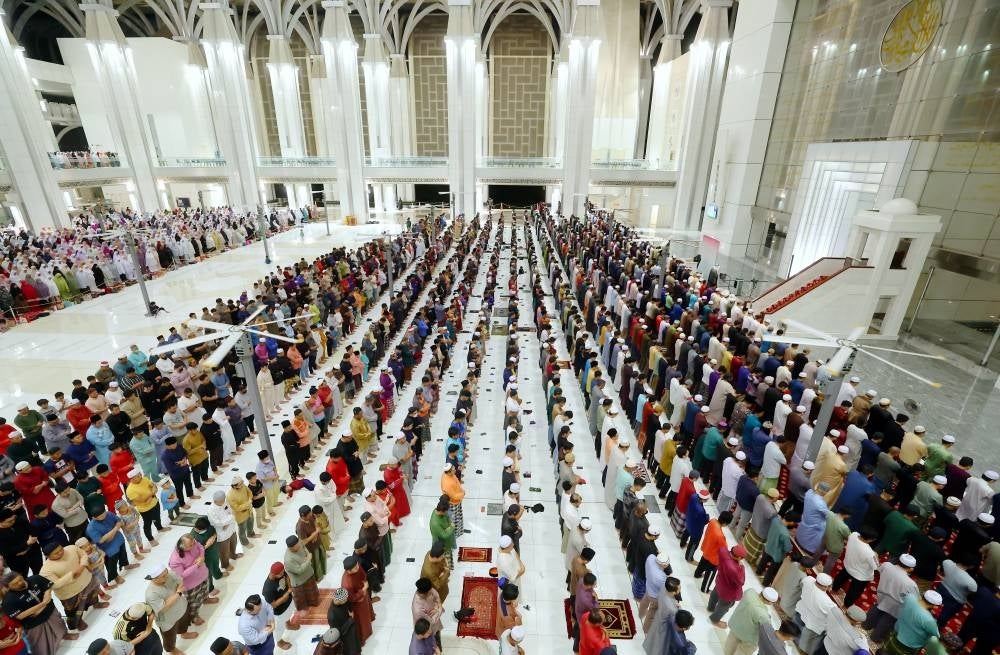Festival of faith and good character
MOHAMED HATTA SHAHROM
We are now fast approaching the middle of Ramadan of the year 1444 Hijrah.
In Arabic, the month of Ramadan is known by two attributes: "Shahrul-Qur'an" (Month of the Qur'an); and "Mahrajan Iman" (Festival of Faith).
The word "mahrajan" is now a loan word in the English and Malay languages.
The Believer in Allah the Almighty and the Prophet Muhammad (peace and blessings of Allah be upon him) strives to improve his or her thinking, feeling, attitudes and behaviour during Ramadan.
This intense purification of the soul during the holy month would help sustain the good ethics and commendable etiquette the Believer practises during the next 11 months of the year – before meeting the next Ramadan, with the permission of Allah.
Ramadan is ineffective and useless to the person whose inferior morality remains the same before, during and after the holy month is over.
A person of bad character improves during Ramadan and becomes a better person after that.
A good person becomes better after the Festival of Faith. Of course a person with sterling qualities remain a beacon for mankind before, during and after Ramadan.
Talking about good morality makes us contemplate an authentic Ḥadith (words, deeds and attitudes of the Prophet) as regards honesty and trustworthiness.
On the authority of Abdullāh bin Amr, Allah be pleased with him, that the Messenger of Allah, peace be upon him, said, “There are four (qualities) such that if you have them, it will not harm you to be deprived of anything in the world: safeguarding trusts (hifzu amanah); truthfulness in speech (sidqu hadith); good character (ḥusnu khaliqah); and purity of livelihood (iffatun fi ta‘matin).”
This Hadith was transmitted by Imam Ahmad in Mishkat, Book of Softening the Hearts, Ḥadith no. 5222 and Sahih al-Jami‘, Ḥadith no. 873. It is quoted by ‘Abd al-Ghaffar Hasan (translator & editor, Usama Hasan), 2009. The Way of the Prophet: A Selection of Hadith. Leicestershire: The Islamic Foundation, p 113.
It was during a lecture series visit to England in autumn 2010 that I bought the above-mentioned book at The Islamic Foundation at Markfield. Since then I have included the meaning of this Hadith in almost all my talks and teaching sessions – locally and internationally.
Perhaps anyone in the world would agree that the four characteristics are universal virtues accepted in any creed or culture.
That it comes from the Prophet of Islam is a reminder to all Muslims that not only the Hadith is applicable universally, one's lofty character must include all of these four qualities.
Ramadan is the time for rejuvenating our souls and enhancing good qualities in our lives.
The mercy and generosity that Ramadan brings is not only felt by the Muslim community but also experienced by humankind at large.
The fasting, the praying, the exercising of prudence with food and finances is part of the spirit of Ramadan.
The Quranic recitation and living by Quranic principles reinforce the Muslim's belief in the One God and His Messengers from the beginning of humankind to Muhammad the Seal of the Prophets.
Professor Datuk Dr. Mohamed Hatta Shaharom is a professor of psychiatry and multi-genre writer.
Download Sinar Daily application.Click Here!














